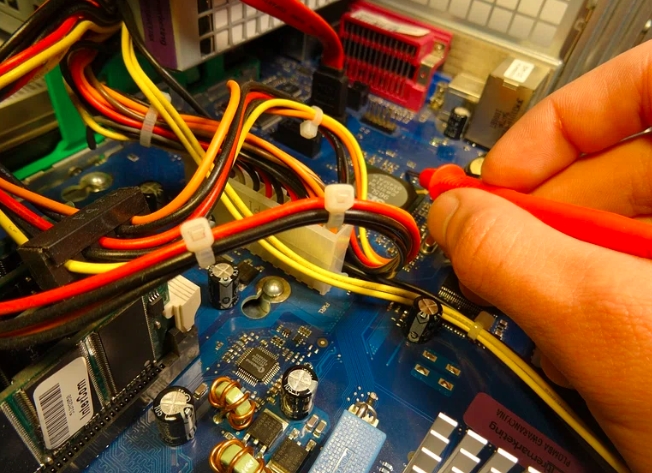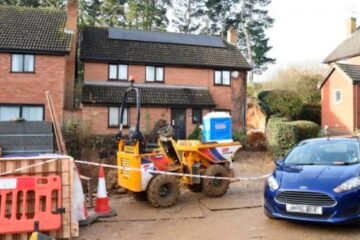From March 1, 2024, private landlords in Scotland will have to comply with new electrical safety rules that aim to ensure their properties are in a reasonable state of repair and in proper working order. The updated Repairing Standard guidance, issued by the Scottish Government, requires landlords to have their electrical installations inspected by a qualified electrician at least once every five years.
What are the changes in the Repairing Standard guidance?
The Repairing Standard is a basic level of repair that all private rented properties must meet. It covers various aspects of the property, such as the structure, the fixtures, the heating, the ventilation, the drainage, the fire safety, and the energy efficiency. The Repairing Standard guidance explains what landlords need to do to meet the standard and how tenants can enforce their rights if the standard is not met.
The updated version of the guidance, which comes into force on March 1, 2024, introduces some changes regarding the electrical safety of the property. Specifically, the guidance states that:

- The installations for the supply of electricity, including the consumer unit, wiring, sockets, switches, light fittings, and any electric heating system, must be in a reasonable state of repair and in proper working order.
- The installations must be inspected and tested by a qualified electrician at least once every five years, or more frequently if recommended by the electrician. The electrician must provide the landlord with an Electrical Installation Condition Report (EICR), which records the results of the inspection and testing and any remedial work required.
- The landlord must provide the tenant with a copy of the most recent EICR before the tenancy starts, or within 28 days of the inspection and testing. The landlord must also provide the tenant with a copy of the EICR whenever requested by the tenant, or by the local authority, or by the First-tier Tribunal for Scotland Housing and Property Chamber.
- The property must have one or more residual current device (RCD) in its consumer unit to reduce the risk of electrocution and fire. An RCD is a device that automatically switches off the electricity if it detects a fault in the circuit. The landlord should advise the tenant to check that the RCD works by pressing the integral test button at specified times.
Why are the changes important?
The changes in the Repairing Standard guidance are intended to improve the safety and quality of the private rented sector in Scotland, which accounts for about 15% of all households. According to the Scottish Government, similar standards are already in place in the social rented sector and in other parts of the UK.
The changes are also supported by SELECT, the leading trade body for the electrical industry in Scotland, which represents over 1,200 member companies and 18,000 electricians. SELECT has been campaigning for higher standards of electrical safety in the private rented sector for many years, and has welcomed the updated guidance as a positive step.
Bob Cairney, Director of Technical Services at SELECT, said: “The changes in the Repairing Standard statutory guidance are not intended to create a different tier for a private rented property versus other forms of tenure when carrying out periodic inspection and testing. They are intended to enable landlords to respond appropriately where a deficiency has been identified that there is no RCD protection provided to meet the minimum requirement of the standard, i.e. there must be at least one RCD.”
He added: “Landlords may now need to take some action where situation is identified in an Electrical Installation Condition Report (EICR) and the electrical contractor responsible for the periodic inspection and testing should be able to provide appropriate advice on how best to comply. Landlords who are unsure of what action to take should contact their local SELECT member, who will be happy to conduct an inspection and advise accordingly.”
What are the consequences of non-compliance?
Landlords who fail to comply with the new electrical safety rules may face legal action from their tenants, the local authority, or the First-tier Tribunal for Scotland Housing and Property Chamber. The tribunal has the power to order the landlord to carry out the necessary work to meet the Repairing Standard, or to pay compensation to the tenant for any loss or inconvenience caused by the breach of the standard. The tribunal can also impose a rent penalty on the landlord, which means that the rent payable by the tenant is reduced until the standard is met.
Moreover, landlords who do not comply with the new rules may also risk invalidating their insurance policies, as most insurers require landlords to have their electrical installations inspected and tested regularly and to keep records of the results. Landlords who do not have valid insurance may face significant financial losses in the event of a claim.
Therefore, SELECT is urging Scotland’s private landlords to act now and ensure their properties are safe and compliant with the updated Repairing Standard guidance before the deadline of March 1, 2024.


















